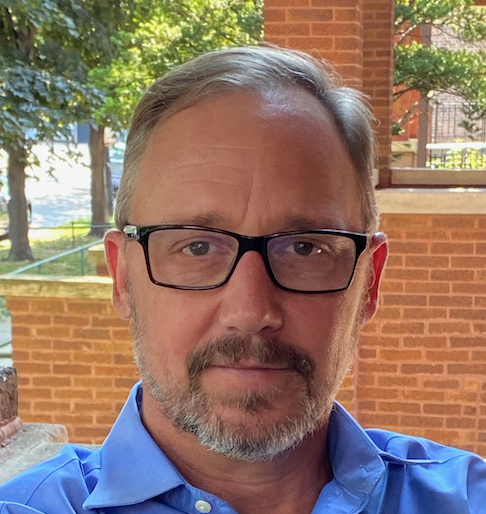Institutional Leaders Who Dare Not Speak, Dare Not Lead
September 10, 2024
Leadership communication has come a long way from "General Motors believes." Alas, now we seem to be headed back in that direction.
I’m disappointed at the way leaders of American institutions are communicating these days. Or not communicating, as the case seems to be.
I’ve been studying this phenomenon longer than most, because my father worked in advertising for General Motors starting in the 1950s. He told me he was frustrated back then by the supremely imperious style of that place, where it was verboten to write an ad beginning, “At General Motors, we believe …” No. It had to be, “General Motors believes …”
During the subsequent seventy-some years since we stopped believing precisely that “what was good for General Motors was good for America,” it has seemed to me that most American institutions have inched toward humanity in their communications.
In the 1980s, Chrysler CEO Lee Iacocca felt it was his job to inspire people with his ideas and spirit, and that anything else on his daily calendar was mere “body and fender work.” Iacocca gave 633 speeches during his tenure at Chrysler. This is what he sounded like when he talked.
And if a movement toward iconoclastic CEOs jumped the shark as a celebrity-CEO fad in the 1990s—a few of you will remember “Chainsaw” Al Dunlap—Jack Welch, Steve Jobs, Warren Buffett and Bill Gates helped to make it generally accepted that when a CEO speaks, she or he isn’t always speaking for every single human being in and around the organization, as was the case with “General Motors believes.” It was called “thought leadership,” and it was the Holy Grail in leadership communication for a couple of decades.
It was, until activists from all sides, beginning with the employee activism of the last decade and continuing with the “woke CEO” accusations of this decade, began taking us back to “General Motors believes.” So that now, if a CEO declares what he or she thinks about a thing, the whole institution is said to share that belief. And if the belief is offensive enough, boycotts are called for. And when boycotts are called for, so are CEOs’ heads.
And so, in this divisive election year and in the weary wake of many years of endless upheaval, it seems we’re headed back—temporarily, we can hope—toward the dark old days of institutions as faceless, heartless edifices. At Ford Motor Company last week, CEO Jim Farley, heretofore one of the more refreshingly outspoken and idiosyncratic CEOs around, swore off weighing in on social issues, except in rare circumstances.
The most powerful voices of our most influential institutions are essentially taking vows of silence. That can’t be good for public discourse. And it certainly can’t be good for executive communication professionals, who are paid to help leaders communicate meaningfully. You don’t need a very big staff to help you hide under your desk.
It seems to me that leaders should take the view that happens to be true: That they are not the Voice of God. They’re just the CEO or the university president. They have thoughts and feelings that you might relate to, and you might not. They believe in free expression: yours—and theirs, from their unique perch at the top of a large global institution with a particular place in the world’s economy and the culture.
One of the best exemplars of this rhetorical position on American scene these days is Michael S. Roth, president of Wesleyan University. Maybe you heard his relaxed tone in an interview with Steve Inskeep on NPR last week, in which he expressed eagerness to engage I dialogue on campus, saying:
University presidents and deans should be contributing to the conversation of the moment, not because they’re going to have people follow them—on the contrary, students always object to anything I say. No matter how reasonable it is, Steve, they’re going to oppose me. [Laughter]. No, you know, I take a stand, and they’re going to oppose me. … I think we should be actually helping the students participate in a conversation around the big issues by participating in the conversation ourselves.
CEOs, too, to the extent that they feel culturally literate enough to address issues outside their immediate business interests. Or feel strongly enough, about a given issue, to acknowledge that they understand others may feel differently but here’s what they feel, here’s what they think, here’s what they see from where they sit. They are obviously not going to say a thing that directly contradicts the basic values or the essential interest of their institution. But if they dare not speak at all, they dare not lead.
To the extent that a leader won’t claim the rhetorical freedom to express any conviction more personal and than what they can vouch that the whole institution believes—well, it’s a loss for the culture. And it’s a loss of leadership in a world where responsible leadership does not grow on trees.
And much less importantly to the society but plenty important to many of us, it renders executive communication more or less a logistical function, rather than the rigorous intellectual and social discipline its best practitioners know it can be.



